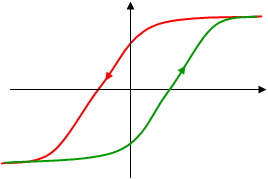When I was a kid I used to read science fiction quite a bit. This was in the 60's and 70's. I don't read that much these days because a lot of it isn't as good as it used to be (though I did read Eifelheim recently).
A common theme is a lot of stories was that humans would become immobilized as they and society became more automated. For example, there were stories about people who didn't do anything but lay in bed all day while their brains where connected to some other reality and stories about what happened when those people suddenly found themselves disconnected from that reality, and so on.
These themes have been picked up by various movie studios, e.g., the Matrix, so they are still alive today.
A few weeks ago someone told me a twitter story that brought back some of these memories (Yahoo link here). The way it was told was "Bill Nye the Science Guy" collapsed on stage during a talk or presentation and, rather than rush to aid him, the audience busily twittered and facebooked about it for several minutes before anyone bothered to help him.
This is more or less what is reported in Yahoo article: Alastair Fairbanks, a USC senior in attendance for Nye's presentation, told the Los Angeles Times that "nobody went to his aid at the very beginning when he first collapsed — that just perplexed me beyond reason." The student added, "Instead, I saw students texting and updating their Twitter statuses. It was just all a very bizarre evening."
Now, interestingly, there is an update at the bottom of the article where these events are replaced with something different: confused people not knowing what to do.
Unfortunately, this isn't the only such incident. According to nola.com a young man was gunned down on the street. Immediately after the gunshot the image of his face in death appeared on the internet along with various twitter accounts of the incident.
One thing that technology brings to life in place of print is lack of hysteresis.
So what is "hysteresis"?
Hysteresis is a delay in the response to given event. (In this case I am NOT talking about sitting there while someone is dying or needs aid and doing nothing.) What I do mean is that news and reporting and delivering information is delayed in response to the event. In the world of print this usually meant, at least recently with the advent of electronic communications, a delay of a day or so. If a bridge collapsed, you read about it the next day.
Over the last hundred years or so the hysteresis between events and people being presented with the information about that event has been shrinking. Its gone from days or weeks to minutes and seconds. With today's technology its no longer the night beat reporter writing about an incident like a collapse of a speaker at a talk - its someone who is just a random person with a cell phone.
Personally I believe that not all people are cut out to "report" in this manner - much less deal with the actual situation. Without some experience (like being a cop or beat reporter) people really cannot deal well with situations like the ones I describe above. They aren't trained, don't have experience, and don't necessarily handle them as well as some better equipped.
I don't believe that the human mind has changed much over the last century to adapt to the reduced "hysteresis" in their lives - particularly as it relates to tragic events. This was seen, for example, in the reporting on the Vietnam war. Prior to that time soldiers from all sides carried cameras and filmed combat - but the results where always delayed and often edited before anyone saw them. Vietnam brought war into people's living rooms directly.
Today with cell phones we have virtually instantaneous reporting of events - with virtually no hysteresis.
I think that question that needs to be asked is whether or not this is a good thing.
Do I really want to see someone's shattered limb, inert body or dead child posted on Facebook or twitter? For good or bad the news reporting function supplied a buffer between the horror of unpleasant events and the description you read over breakfast coffee. But today that buffer is vanishing.
And were will that leave us?
Certainly there is plenty of horror in the world - but do I really want a live feed of it all coming directly into my cell phone?
And as a human being am I equipped to deal with something like a dead persons face popping up on twitter as I peruse my phone at a break at work or at home during dinner?

No comments:
Post a Comment